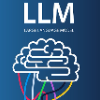Large language models (LLMs) have made significant progress in NLP. However, their ability to memorize, represent, and leverage commonsense knowledge has been a well-known pain point. In this paper, we specifically focus on ChatGPT, a widely used and easily accessible LLM, and ask the following questions: (1) Can ChatGPT effectively answer commonsense questions? (2) Is ChatGPT aware of the underlying commonsense knowledge for answering a specific question? (3) Is ChatGPT knowledgeable in commonsense? (4) Can ChatGPT effectively leverage commonsense for answering questions? We conduct a series of experiments on 11 datasets to evaluate ChatGPT's commonsense abilities, including answering commonsense questions, identifying necessary knowledge, generating knowledge descriptions, and using knowledge descriptions to answer questions again. Experimental results show that: (1) ChatGPT can achieve good QA accuracies in commonsense tasks, while still struggling with certain domains of datasets. (2) ChatGPT is knowledgeable, and can accurately generate most of the commonsense knowledge using knowledge prompts. (3) Despite its knowledge, ChatGPT is an inexperienced commonsense problem solver, which cannot precisely identify the needed commonsense for answering a specific question. These findings raise the need to explore improved mechanisms for effectively incorporating commonsense into LLMs like ChatGPT, such as better instruction following and commonsense guidance.
翻译:暂无翻译




